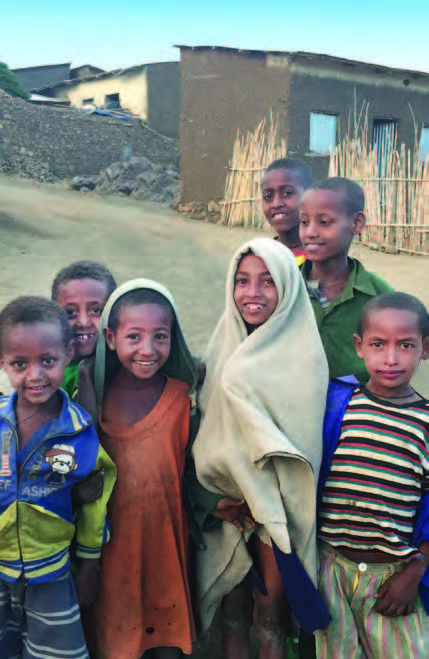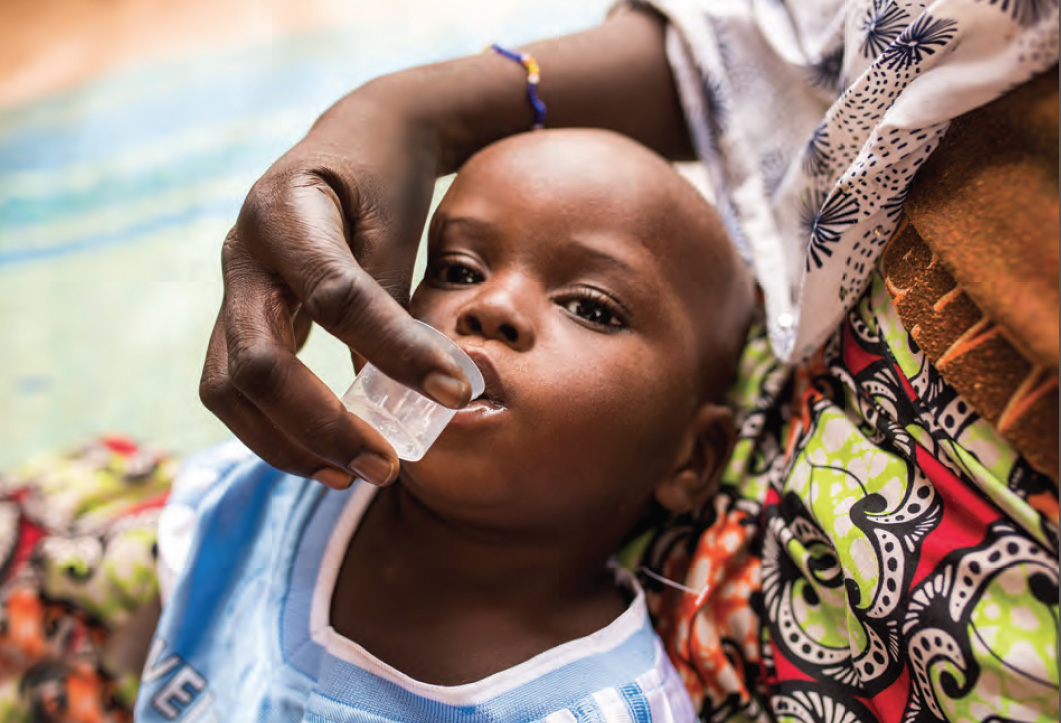Committed to reducing blindness worldwide, UCSF’s Francis I. Proctor Foundation for Research in Ophthalmology has worked in sub-Saharan Africa since 2000.
A major investigation led by the Proctor Foundation is rocking the public health firmament. “The study shows we can prevent young children in sub-Saharan Africa from dying with a simple intervention,” says Jeremy Keenan, MD, MPH, director of International Programs.
This team previously established that the same intervention saves children’s sight. The UCSF team and international partners investigated whether giving two doses a year of a common antibiotic to infants and toddlers in Malawi, Tanzania, and Niger would reduce child deaths. The work was funded with $14.8 million from the Bill & Melinda Gates Foundation.
According to principal investigator Thomas Lietman, MD, the biggest effects were seen in Niger, where 10 percent of newborns do not survive to their fifth birthday. A continuation of the Niger study will examine the impact of a four-year course of treatment, with the support of a $2.4 million Gates Foundation award.
Tens of Thousands of Lives Saved
With 190,000 children participating, the treatments prevented one in four deaths among 1- to 5-month-olds and slashed death rates by nearly 14 percent overall. The New England Journal of Medicine published the results in April, with Dr. Keenan as lead author. The news was covered everywhere from CNN to the Wall Street Journal and NPR.
The New York Times reported that these results are influencing the World Health Organization to decide whether to advise routinely giving antibiotics to newborns. Such a recommendation could speed progress toward the United Nations’ goal of ending preventable child deaths by 2030. Concerns about antibiotic resistance are central to this discussion. In fact, Proctor scientists monitored resistance bacteria in the respiratory tract and the stool, and they will continue to do so for the next two years.
Saving Sight Increased Survival
The Proctor Foundation’s meticulous studies on community-wide administration of the antibiotic azithromycin have played a leading role in arresting the epidemic spread of trachoma.
Early studies also showed that the vision-saving treatment increased survival rates for young children. Researchers believe the antibiotics could possibly help children fight off pneumonia, malaria parasites, and diarrhea, the biggest causes of death for this group.

Next Study to Support Newborns
The UCSF team is taking another leap forward, supported by a new $13.5 million award from the Gates Foundation. A three-year study of at least 50,000 young children in Burkina Faso is being planned. Drs. Lietman and Keenan share principal
investigator honors with colleagues Catie Oldenburg, PhD, and Thuy Doan, MD, PhD. In the first study, most babies were not treated in their earliest months, when they are most vulnerable. “In Burkina Faso, we are partnering with local health workers to provide azithromycin to infants at 4-6 weeks, during vaccine visits,” explains Dr. Oldenburg. The study will explore whether treatment in the first weeks of life helps infants survive.
Biosamples to Yield Answers
Biosamples gathered from the infants and toddlers are critical to understand precisely why more children survive,” says Dr. Doan. Using conventional and advanced genetic sequencing techniques, she will analyze samples from the back of the throat and the gut to determine which pathogens are being killed. She’ll also monitor for antibiotic-resistant genes and characterize the microbial environment in these children’s digestive systems.
“ Thanks to the Bill & Melinda Gates Foundation, we are able to test our strategies at scale.” – Dr. Thomas Lietman
Research Benefits Sight, Too
“As we determine how best to use antibiotics to help vulnerable children survive, we also see benefit for the overall trachoma eradication program,” says Dr. Lietman. Seed funds from That Man May See helped launch this work many years ago, with pilot funding from John Debs and others. “Small well-designed studies allowed us to establish evidence that led to increased support from the Bernard Osher Foundation, the National Institutes of Health, and most notably the Gates Foundation.” says Dr. Lietman.

